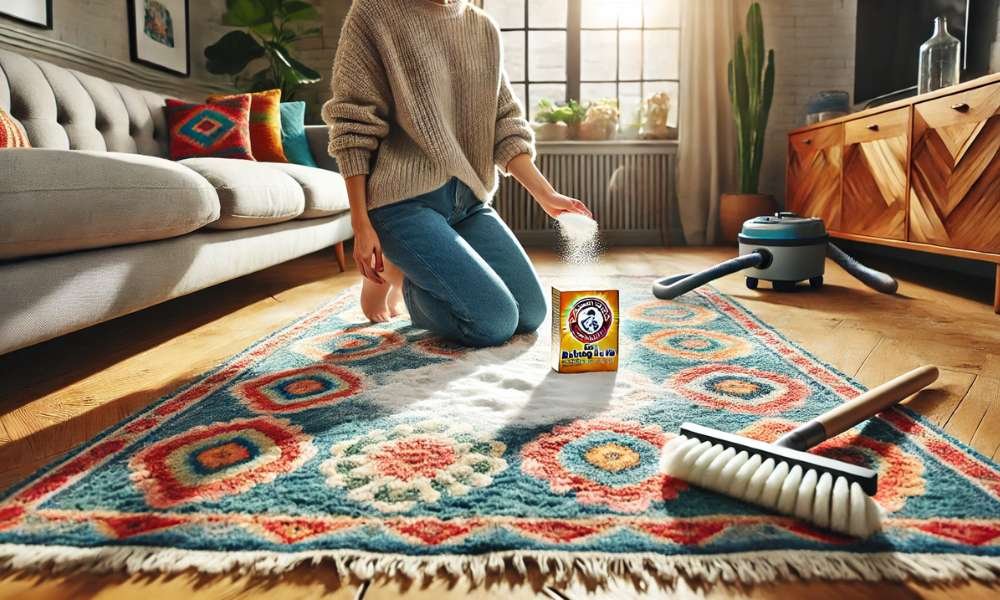Clean your rugs doesn’t need to be a complex or expensive assignment. One of the easiest and most effective methods is using baking soda. If you’ve been questioning how to clean a rug with baking soda, you’re inside the right area. This herbal cleaner now not simplest facilitates eliminating odors but also lifts dirt and stains, leaving your rugs looking clean and feeling gentle. Whether you’ve got a wool rug or an artificial one, Sodium bicarbonate can be a game-changer in your cleansing routine. Let’s dive into the step-by-step process for achieving spotless, fresh rugs with this smooth solution!
The Benefits of Cleaning Rugs with Baking Soda
Why Baking Soda Works Wonders on Rugs
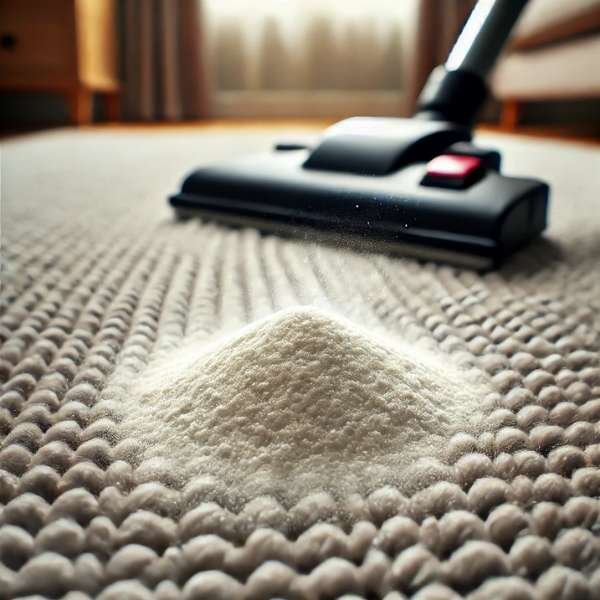
sodium bicarbonate has a unique knack for absorbing moisture and neutralizing acidic odors. Its pleasant particles effortlessly settle into your rug’s fibers, wherein it is able to break down filth that vacuums alone cannot attain. It’s the form of sluggish, regular cleaning power that seems nearly too exact to be genuine—yet it really works, whenever.
Eco-Friendly and Non-Toxic Cleaning Alternative
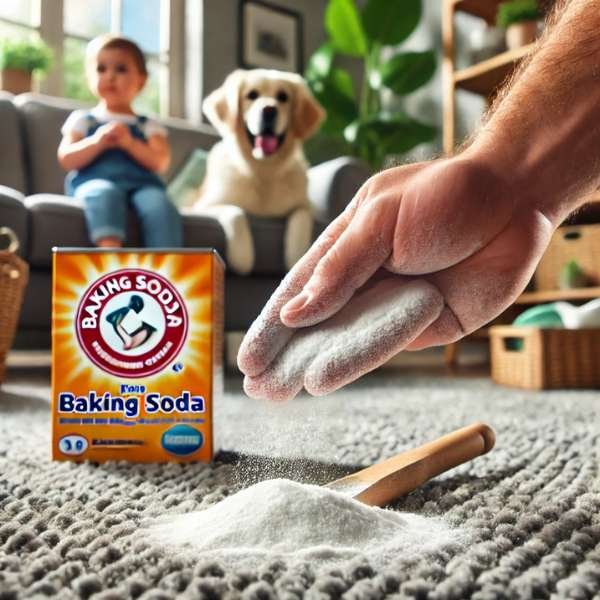
Forget about chemical-encumbered sprays and detergents; sodium bicarbonate is the non-toxic hero your carpet merits. Safe for homes with children, pets, or sensitive noses, it leaves no harmful residue behind. You can use it liberally without the concern of chemical publicity, making it the closing cleansing agent for the eco-aware.
Understanding Your Rug’s Material Before Cleaning
Different Rug Fabrics and How They Respond to Baking Soda
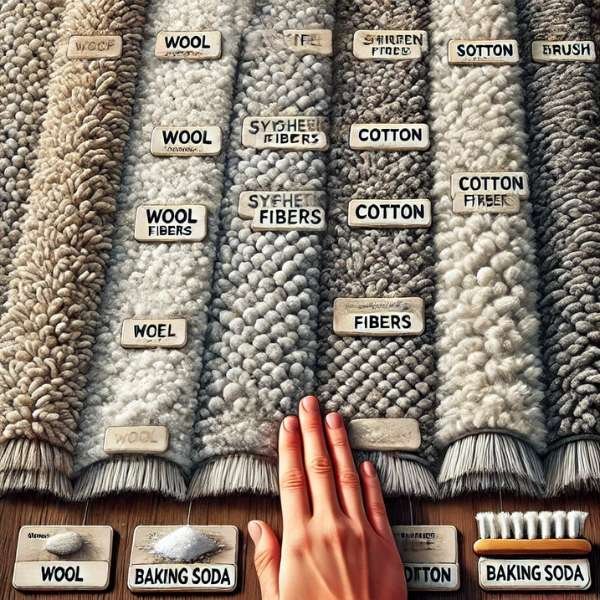
Every rug is precise, and understanding its fabric is vital earlier than you start sprinkling sodium bicarbonate around. Wool rugs, for example, are absorbent and can be extra sensitive when dealing with, at the same time synthetic fibers can withstand a piece greater elbow grease. Understanding your rug’s composition will make sure that your cleaning efforts don’t cause unintended harm.
Is Baking Soda Safe for All Types of Rugs?
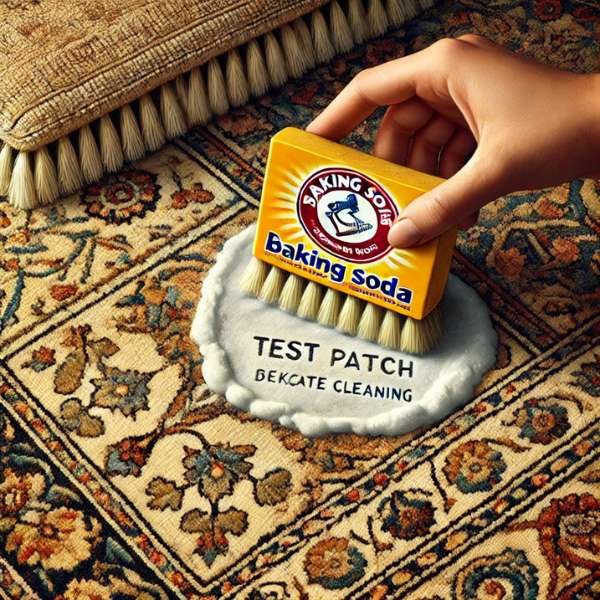
In widespread, Alkaline powder is safe for most rug kinds. However, greater sensitive materials like silk or vintage rugs may need extra care. While it’s unlikely to cause on-the-spot harm, overuse should weaken the fibers through the years. Always check a small area first to make certain the color and texture are intact.
Essential Supplies You’ll Need to Clean
Gathering the Right Tools for a Thorough Cleaning
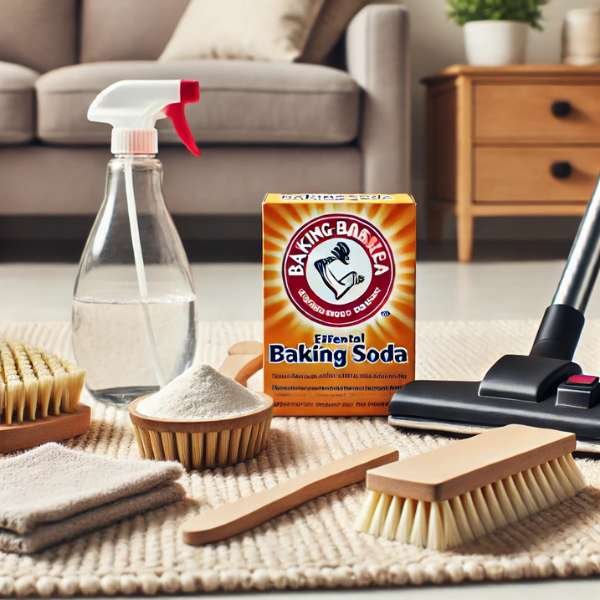
Before you begin, gather a vacuum, fresh sodium bicarbonate, a gentle brush for scrubbing stubborn regions, and dry material for spot treatment. These simple gear are all you need to get your carpet searching and smelling like new.
How to Prepare Your Rug for a Baking Soda Clean
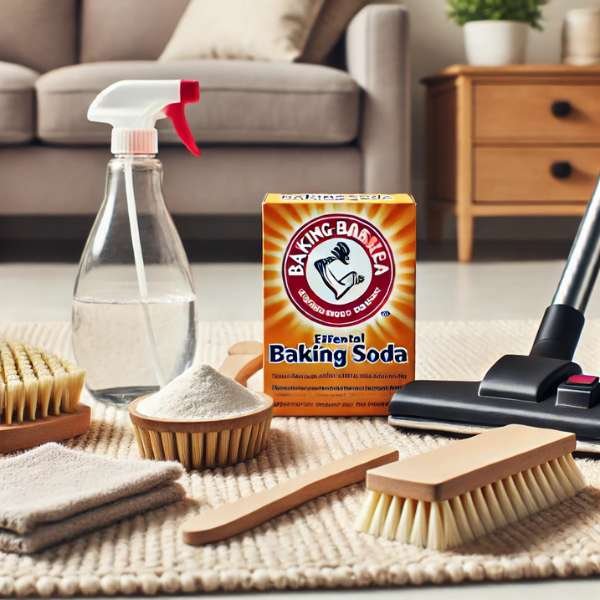
First, vacuum your rug to clean away loose dirt and debris. This step is fundamental as it permits the sodium bicarbonate to penetrate the rug fibers more efficiently, dealing immediately with the odors and dust trapped inside.
Before wash a wool rug in the washing machine, preparing it for a baking soda clean is essential for freshening it up. Begin by gently shaking out any loose dirt and debris. Then, sprinkle a generous amount of Sodium bicarbonate over the rug’s surface, allowing it to sit for at least 15 minutes. Vacuum thoroughly to lift odors and dirt before washing.
How Baking Soda Removes Stains and Odors from Rugs
The Science Behind Soda’s Deodorizing Properties
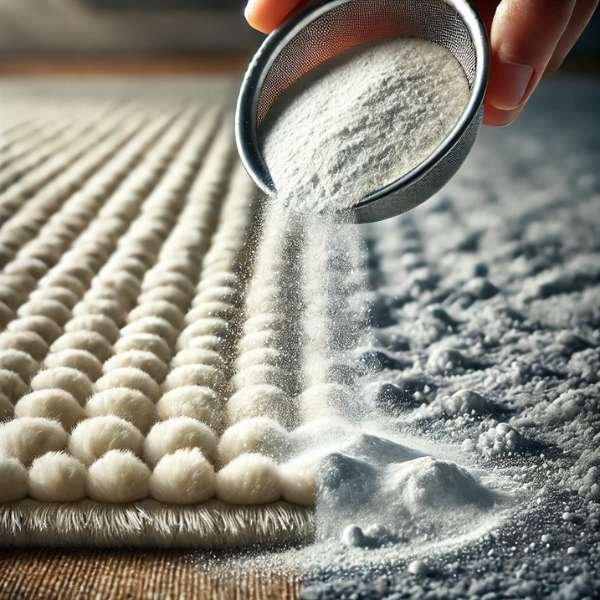
Alkaline powder’s chemical residences make it a master at neutralizing odors. It doesn’t simply mask smells; it gets rid of them. From pet dander to lingering meal odors, a sprinkling of sodium bicarbonate can do wonders to repair your carpet’s freshness.
How It Lifts Tough Stains Without Harsh Chemicals
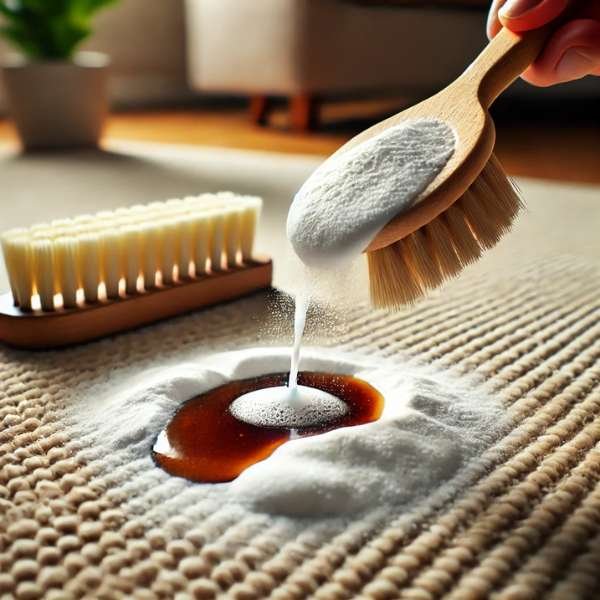
Spills take place, and once they do, Sodium bicarbonate may be your quality protection. By absorbing drinks and binding to particles, it lifts stains without the need for robust detergents. Coffee spill? Wine catastrophe? Just allow the sodium bicarbonate to sit and do its magic before you vacuum it up.
Step-by-Step Guide: How to Clean a Rug
Step 1: Prepping the Rug for the Cleaning Process
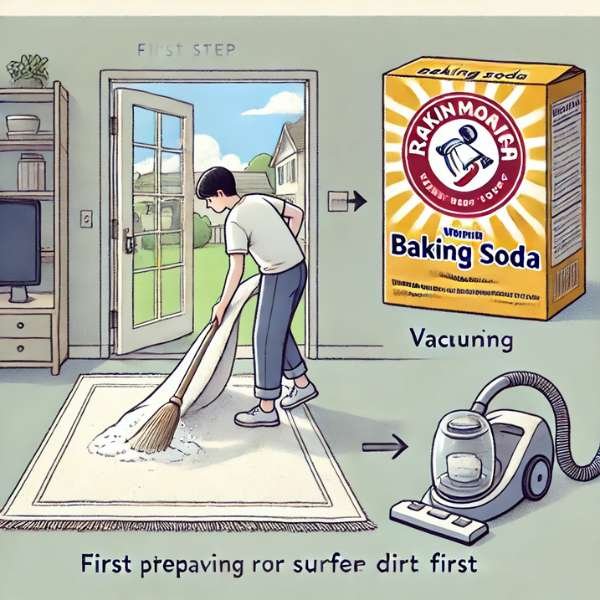
Start by giving your rug a good shake outside or a thorough vacuuming. This removes any surface-level debris and prepares the carpet for a deeper clean.
Step 2: Sprinkling on the Rug
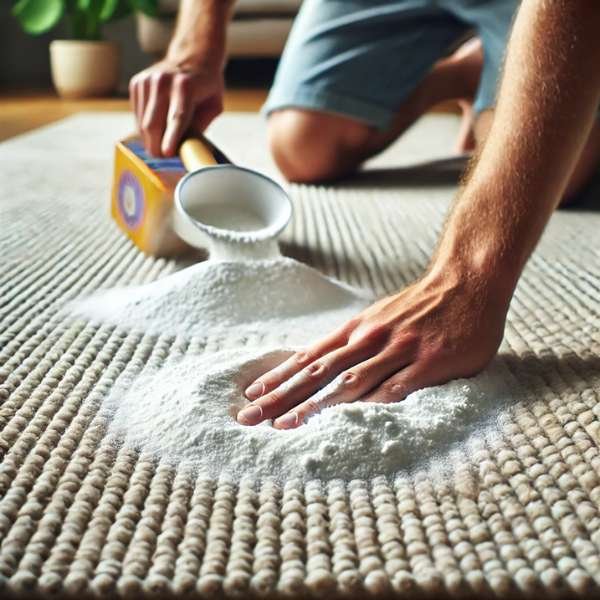
Next, evenly sprinkle sodium bicarbonate across the entire carpet. For areas with heavy odors or visible stains, apply a little extra. Don’t skimp!
Step 3: Letting Do Its Magic
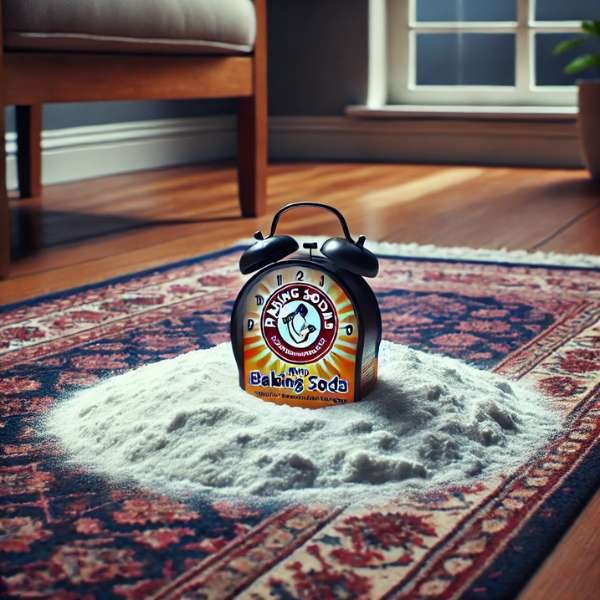
Patience is key. Allow the sodium bicarbonate to rest for a minimum of 15 minutes. For tougher stains or odors, leave it for up to an hour or more. This gives it time to fully absorb all the grime and unwanted smells.
Step 4: Vacuuming Up the Residue for a Fresh Finish
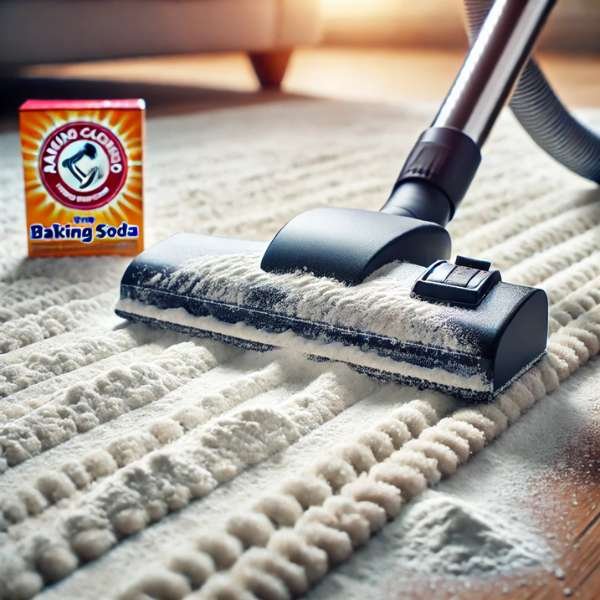
Once the sodium bicarbonate has worked its wonders, vacuum the rug thoroughly. Make sure you go over the area several times to ensure all residue is gone, leaving your carpet fresh and clean.
Combining Baking Soda with Other Natural Cleaners
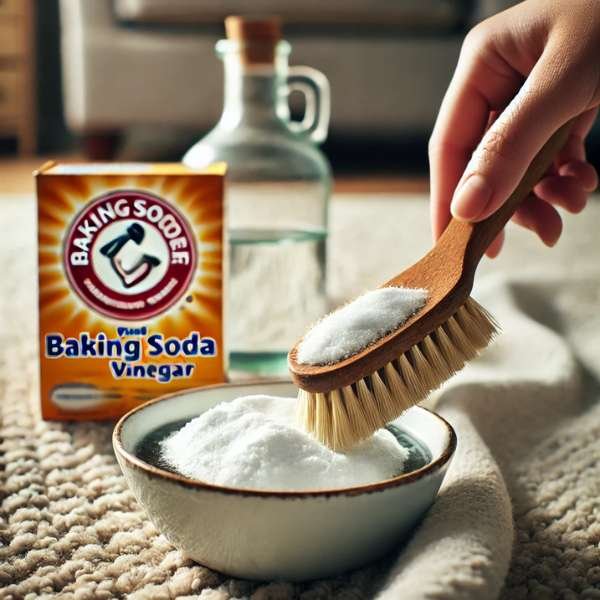
For tough stains, try mixing sodium bicarbonate with a bit of vinegar or water to create a paste. This enhances its cleaning power and makes it easier to lift stubborn spots.
Targeting Specific Stains: Wine, Coffee, and More
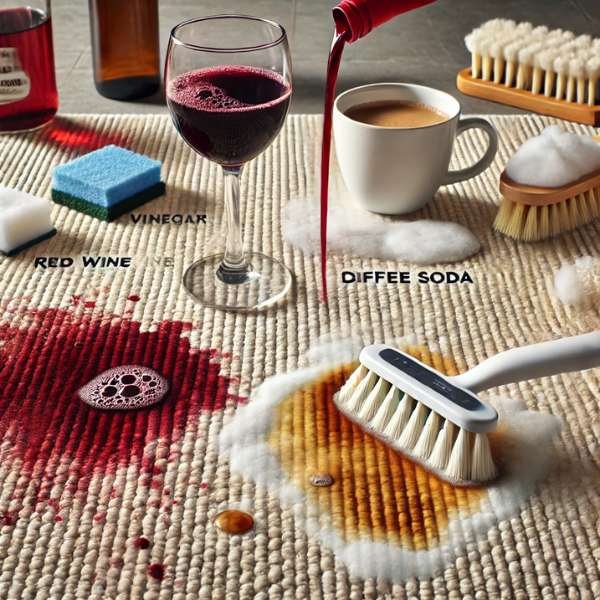
Not all stains are created equal. Red wine spills, for example, benefit from a sodium bicarbonate and vinegar combo, while coffee stains might need a little dish soap mixed with Bicarb soda for an effective clean.
Deep Cleaning High-Traffic Areas of Your Rug
How to Spot Treat Heavily Used Areas
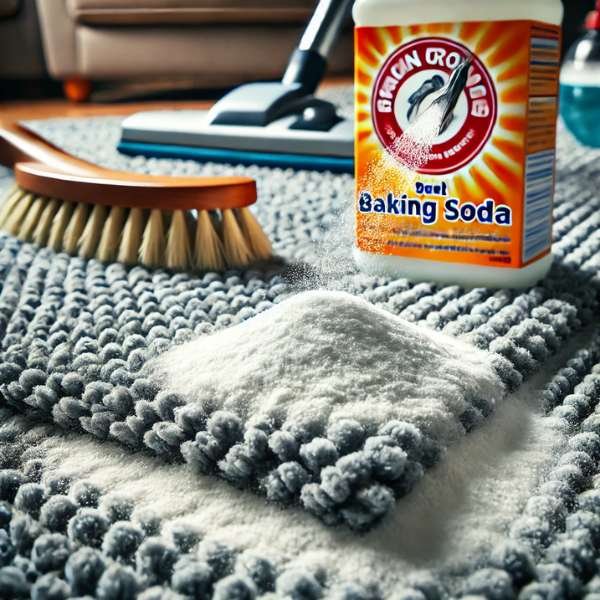
High-traffic areas accumulate the most dirt and wear. To refresh these spots, apply extra sodium bicarbonate and let it sit longer than usual. This will help restore your carpet’s appearance and extend its lifespan.
The Secret to Maintaining Your Rug’s Freshness
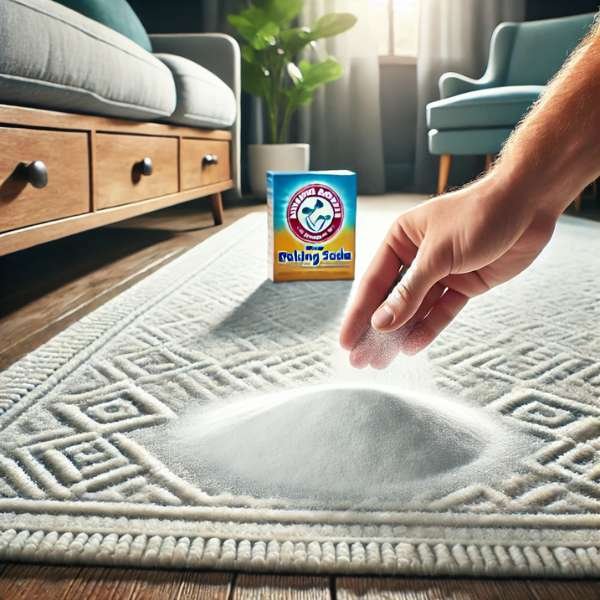
Even when a rug appears smooth, every day sodium bicarbonate treatments can prevent odors and dust from settling in. Treating high-traffic regions every few weeks will keep your carpet looking—and smelling—like new.
Using Baking Soda for Pet-Related Odors and Stains
Safely Removing Pet Hair and Odors
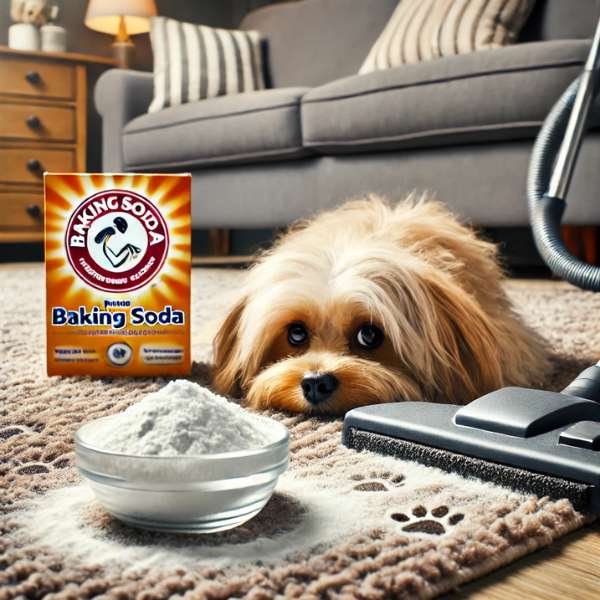
Pets are notorious for leaving in the back of hair and odors. A sprinkle of sodium bicarbonate, not the handiest neutralizes those smells however also helps loosen puppy hair, making it easier to vacuum up.
Tips for Pet-Friendly Homes
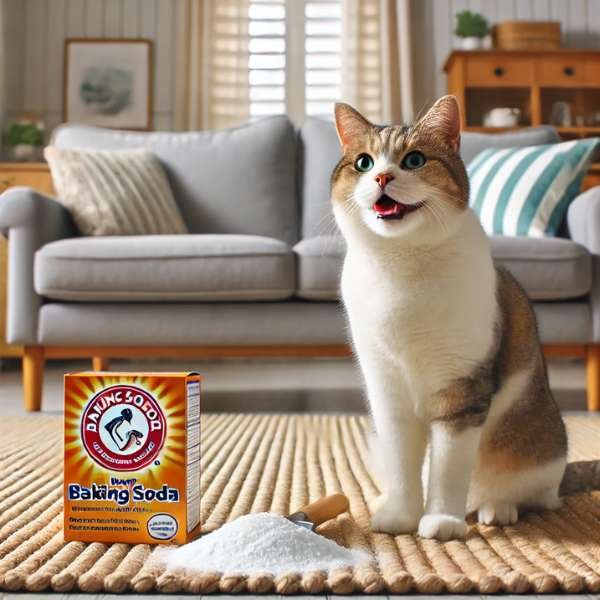
For houses with pets, a month-to-month application of Alkaline powder can do wonders in maintaining clean and smooth surroundings. This non-toxic, mild solution ensures your carpet remains spotless without posing any danger to your beloved pets.
How Often Should You Clean Your Rug with Baking Soda?
Creating a Regular Rug Cleaning Routine
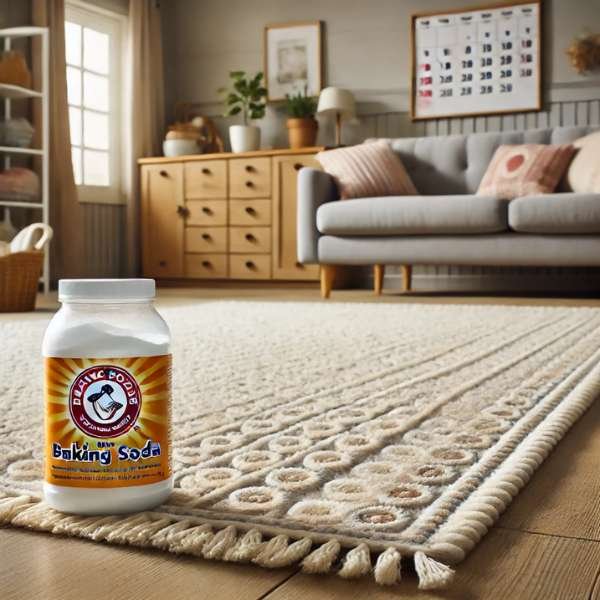
Creating a regular rug cleansing habit is crucial for retaining both the freshness and sturdiness of your rugs. Incorporating simple methods like vacuuming weekly and spot-cleaning stains immediately can prevent dirt and grime buildup. For a deeper clean, consider using Sodium bicarbonate. Knowing how to clean a rug with Bicarb soda allows you to remove odors and stains effectively, keeping your rugs looking and smelling fresh.
Seasonal Cleaning Tips to Keep Rugs Fresh Year-Round
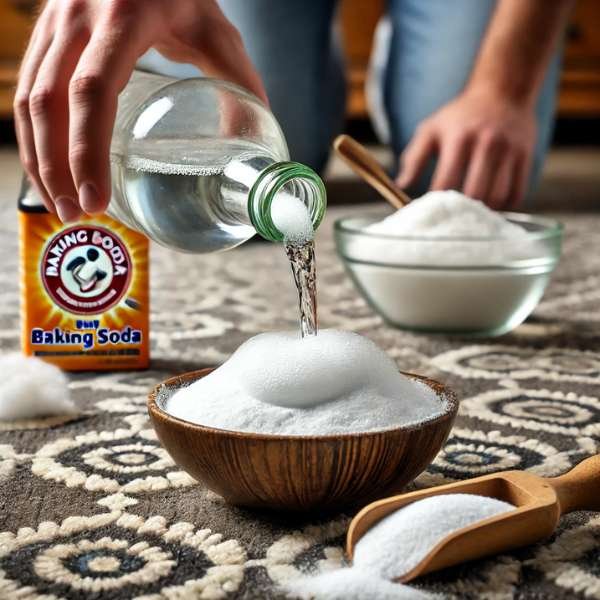
Spring and fall are wonderful instances for a deep smooth. Use the conversion of seasons as a reminder to refresh your carpets with a thorough sodium bicarbonate treatment.
Baking Soda Alternatives: When to Use Them
Can You Mix Baking Soda with Vinegar for Rug Cleaning?
Yes! When combined, Alkaline powder and vinegar create a fizzing reaction that can help break down tough stains. It’s an eco-friendly alternative that packs a powerful cleaning punch.
Other Natural Cleaners to Try for Different Stains
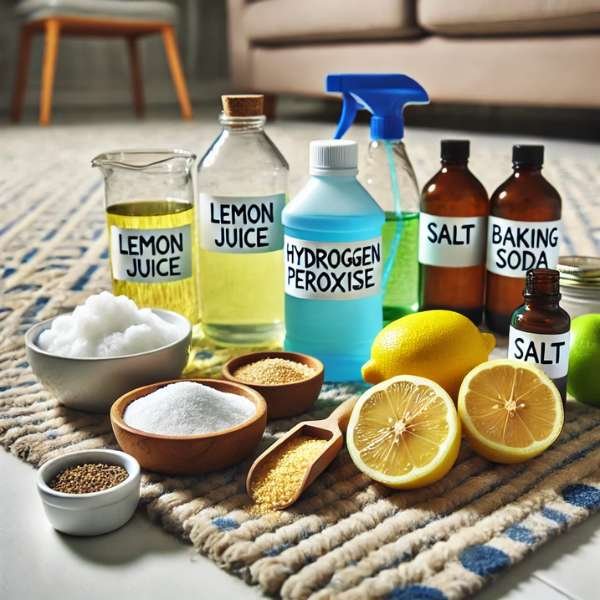
For those tougher stains, lemon juice, hydrogen peroxide, or salt can provide an extra cleaning boost. Pairing these natural cleaners with Alkaline powder enhances its effectiveness, making it easier to remove stubborn spots.
Mistakes to Avoid When Cleaning a Rug
Overapplying Baking Soda: What to Watch Out For
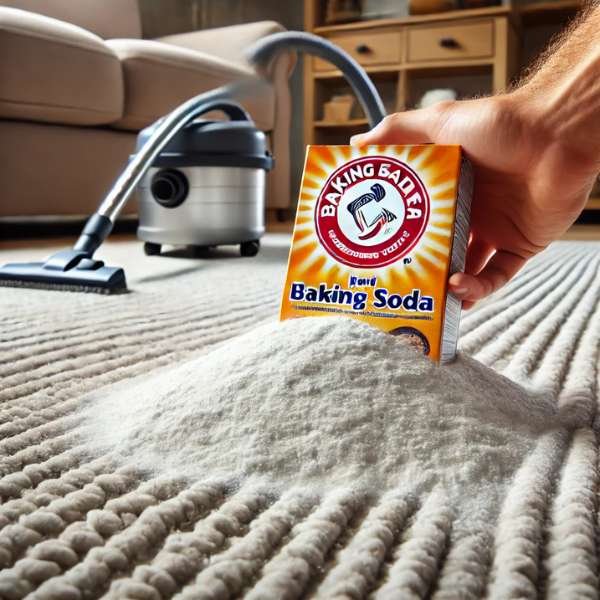
More isn’t always better. Overapplying Alkaline powder can lead to residue buildup that’s tough to remove, especially on thicker rugs. Apply a reasonable amount to achieve optimal results.
Why Patience is Key
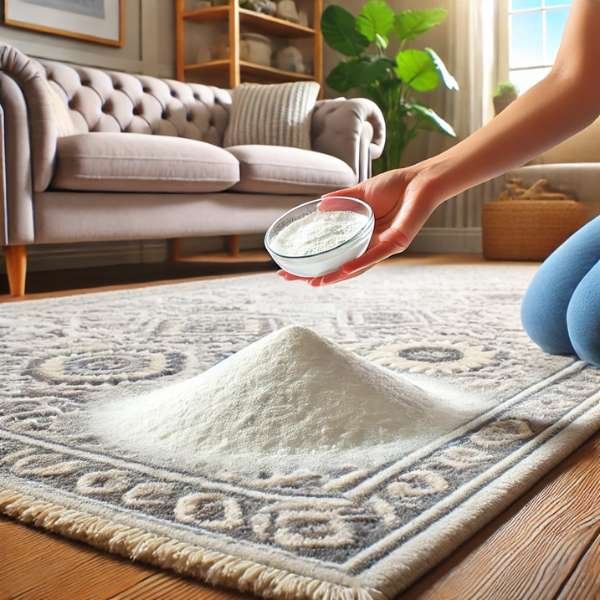
Don’t rush the process! Giving the Alkaline powder time to work is essential. The longer it sits, the more grime and odors it can absorb.
How Baking Soda Helps Maintain Your Rug’s Lifespan
Protecting Your Investment with Regular Cleaning
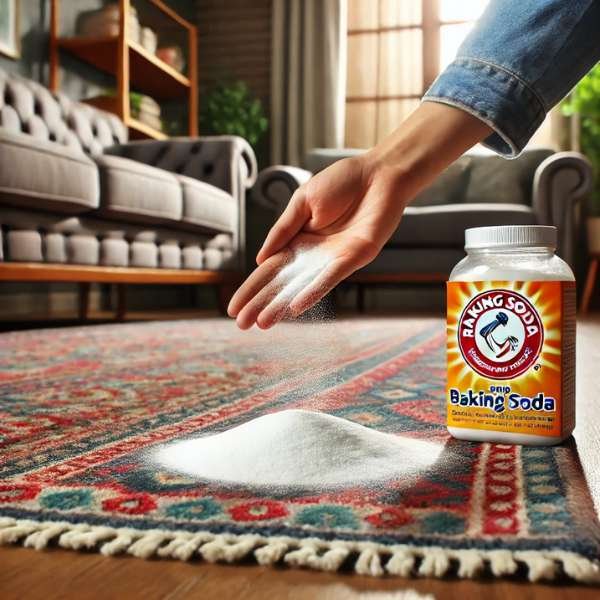
Regular cleansing with Alkaline powder maintains your rug searching its nice, which in flip extends its lifespan. By preventing dust and oils from settling into the fibers, you’re investing in the sturdiness of your carpet.
How Baking Soda Preserves Rug Color and Texture
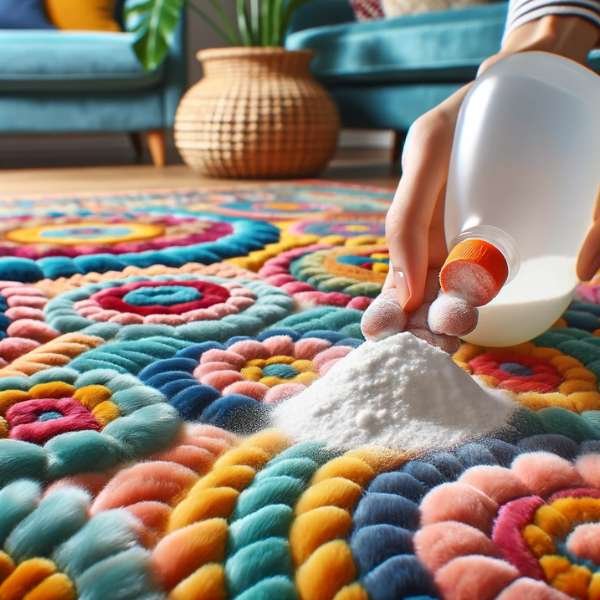
How to Clean Rugs with Baking Soda and Essential Oils
Adding Fragrance While You Clean
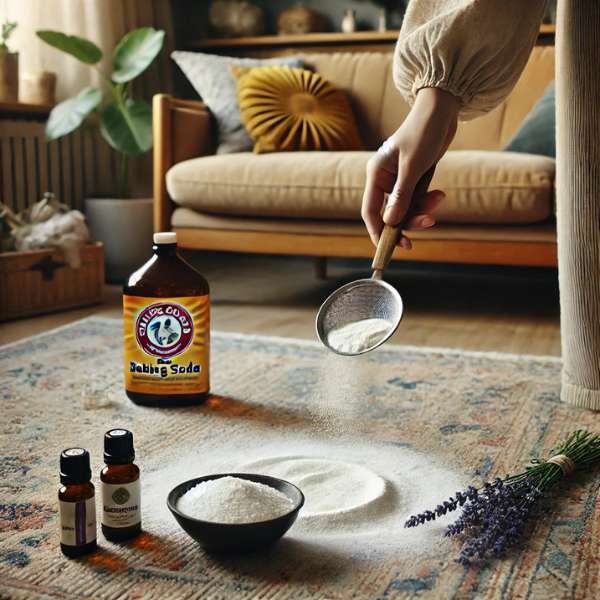
For a subtle fragrance after cleaning, mix a few drops of essential oil with the Alkaline powder before sprinkling it on your carpet. Lavender or eucalyptus are excellent options for a soothing, pleasant scent.
The Best Essential Oils for a Fresh Scent
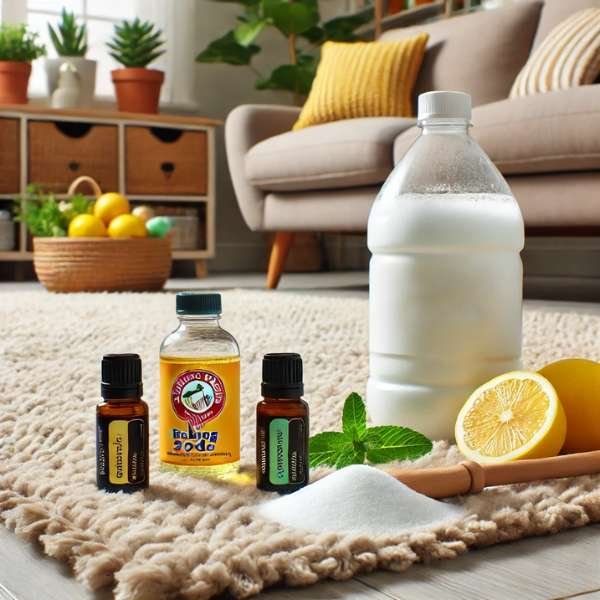
For an easy, lingering heady scent, try lemon, tea tree, or peppermint vital oils. They’ll not simplest ease your carpet but additionally infuse your property with a sparkling aroma.
Final Tips for Beginners Cleaning
Quick Tricks for an Even Cleaner Rug
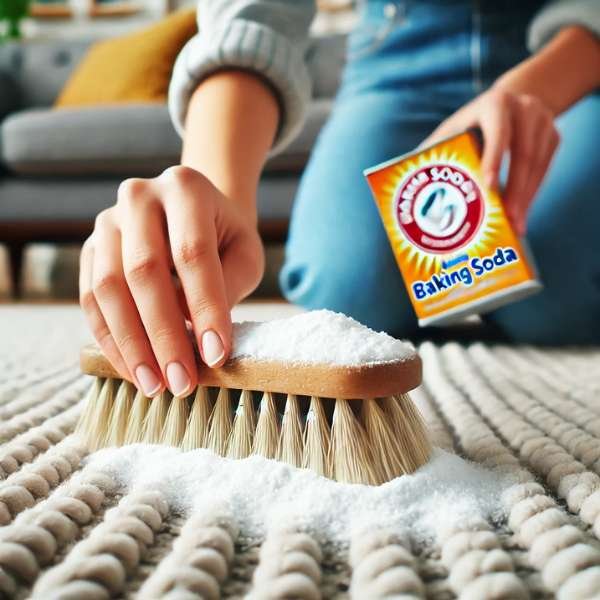
To bring deeper dust, use a soft-bristled brush to softly paintings the Alkaline powder into the carpet fibers. This enables ensuring an intensive cleaning.
How to Store and Keep Baking Soda Fresh for Cleaning
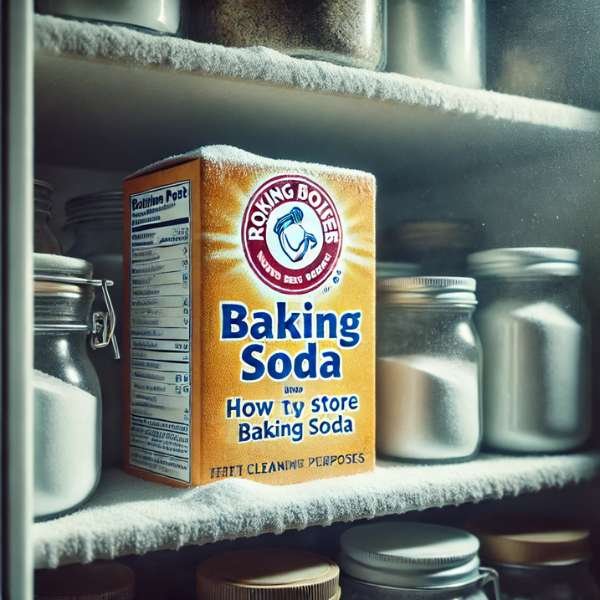
Store your Alkaline powder in a sealed discipline in a groovy, dry vicinity to hold its efficiency for future use.
Conclusion
Cleaning a rug with Sodium bicarbonate is an easy, effective, and eco-friendly solution for maintaining a fresh and inviting home. By following simple steps—like sprinkling Bicarb soda, letting it sit to absorb odors and stains, and thoroughly vacuuming—you can rejuvenate your rug without harsh chemicals. Remember, how to clean a rug with baking soda not only saves time but also protects your family and pets from harmful residues. Give this method a try for a cleaner, healthier living space!

